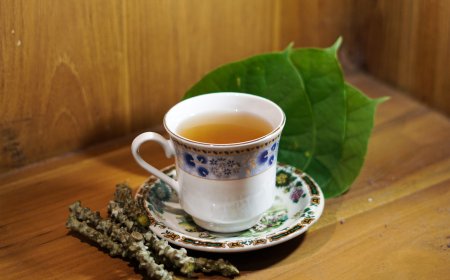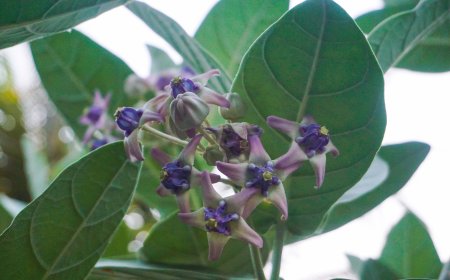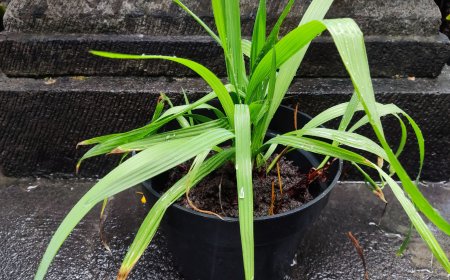The Benefits of Basil in the Lontar Taru Pramana: Natural Remedies and Spiritual Significance
Basil leaves (Ocimum basilicum) are widely recognized as a herbal plant not only used in culinary applications but also possessing significant medicinal benefits. Since ancient times, particularly in traditional medicine as recorded in Balinese lontars, basil has been utilized to address various health complaints. The essential oils, vitamins, and antioxidant compounds in basil leaves contribute to their healing properties.
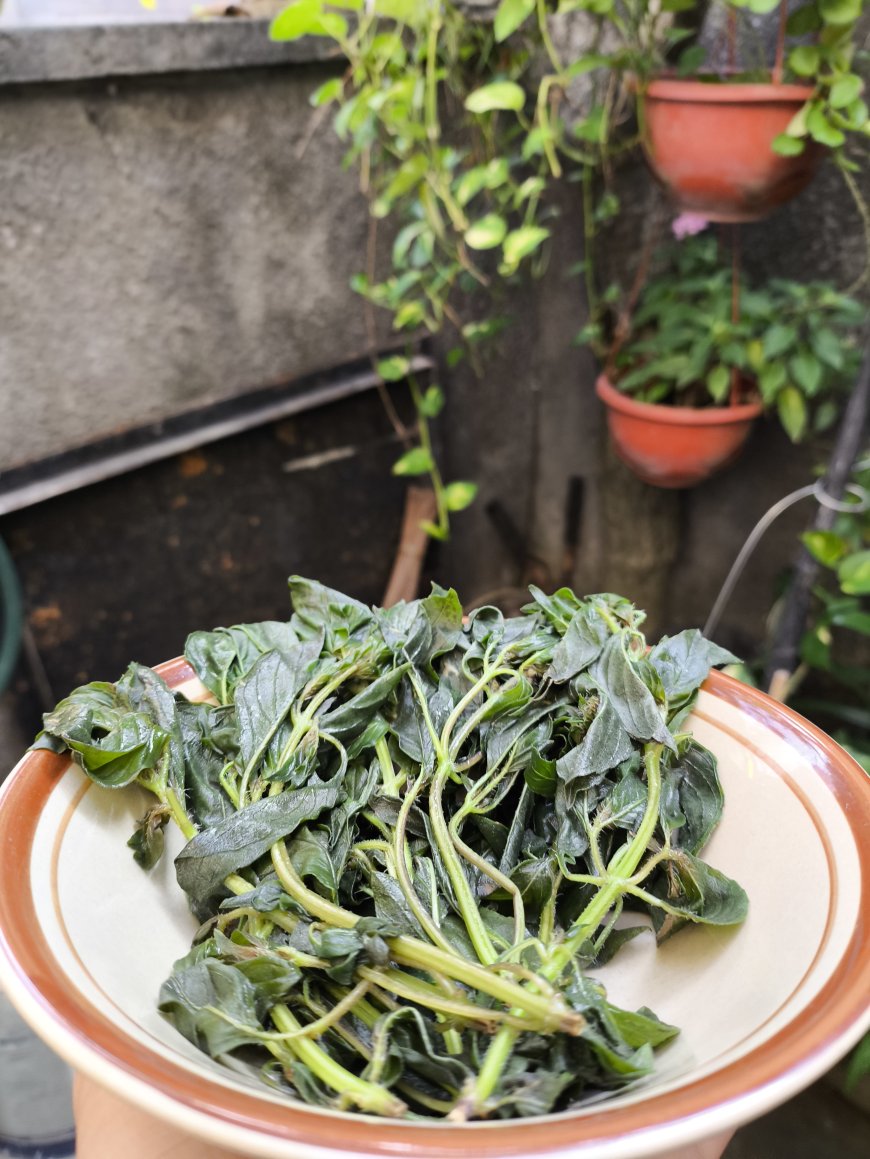
The Lontar Taru Pramana is a valuable literary heritage from Bali that contains knowledge about plants and their medicinal properties, as well as their spiritual significance. Among the plants mentioned in this lontar, basil stands out as an herbal remedy with numerous benefits, both for health and in religious rituals.
Natural Remedies in Lontar Taru Pramana
In the Lontar Taru Pramana, basil is recognized as a plant with many health benefits. Some of the primary advantages of basil leaves mentioned in this lontar include:
1. Relieving Digestive Issues: Basil is believed to help alleviate stomach problems such as nausea, bloating, and digestive disturbances due to the antispasmodic properties found in its essential oils.
2. Natural Antiseptic: The antimicrobial properties of basil make it a natural remedy for preventing infections in minor wounds. Basil leaves are often used in the form of pastes or decoctions to treat light wounds and skin irritations.
3. Calming the Nerves and Reducing Stress: The lontar also notes that basil has a calming effect and is commonly used in herbal remedies to alleviate anxiety and stress. Its distinctive aroma is believed to promote relaxation and tranquility.
4. Reducing Fever: Basil is also used as a component in herbal mixtures for lowering fever. When combined with other herbal plants, basil is thought to aid in perspiration and reducing body heat.
Spiritual Significance in Rituals
In addition to its health benefits, basil plays an important role in the spiritual aspects of Balinese society. In the Lontar Taru Pramana, basil is viewed as a plant with strong spiritual energy, often utilized in various religious rituals, including:
1. Self-Purification (Melukat): Basil leaves are commonly used in the melukat ceremony, a ritual for spiritual cleansing. Basil is believed to possess the power to clear negative energies and bring inner peace. The water used in the melukat ritual is often infused with basil leaves for added purifying strength.
2. Offerings in Rituals: Basil is also included in offerings during various religious ceremonies in Bali. In this context, basil is regarded as a symbol of purity and harmony, providing protection and balance between humans and the universe.
3. Cleansing the Environment: Basil is frequently used to purify the environment, particularly during religious ceremonies at temples or homes. Its use in these rituals is believed to help dispel negative energies and bring tranquility and peace.
Relevance in Modern Life
Although recorded in ancient lontars, the benefits of basil remain relevant today. In addition to its traditional uses, basil is now recognized as a source of antioxidants and nutrients in modern health practices, making it a valuable plant for maintaining physical and spiritual balance.
As taught in the Lontar Taru Pramana, basil represents holistic health—nurturing the body and calming the spirit, a legacy that continues to be appreciated in contemporary times.
Steps to Prepare Herbal Remedies from Basil Leaves
Here are simple steps to make a medicinal concoction from basil leaves, which offer various health benefits, particularly in alleviating issues like nausea, bloating, and other digestive disorders. Basil leaves are known to contain compounds that help soothe the digestive system, making this remedy a natural solution for common digestive problems, whether used regularly or as needed when symptoms arise.
Ingredients:
1. Prepare 10 fresh basil leaves : Choose basil leaves that are still fresh and green. Fresh leaves have a higher essential oil content, which is beneficial for relieving digestive disorders.
2. Prepare 1 cup of hot water : Boiling water serves to extract the active compounds from the basil leaves into the solution.
Instructions:
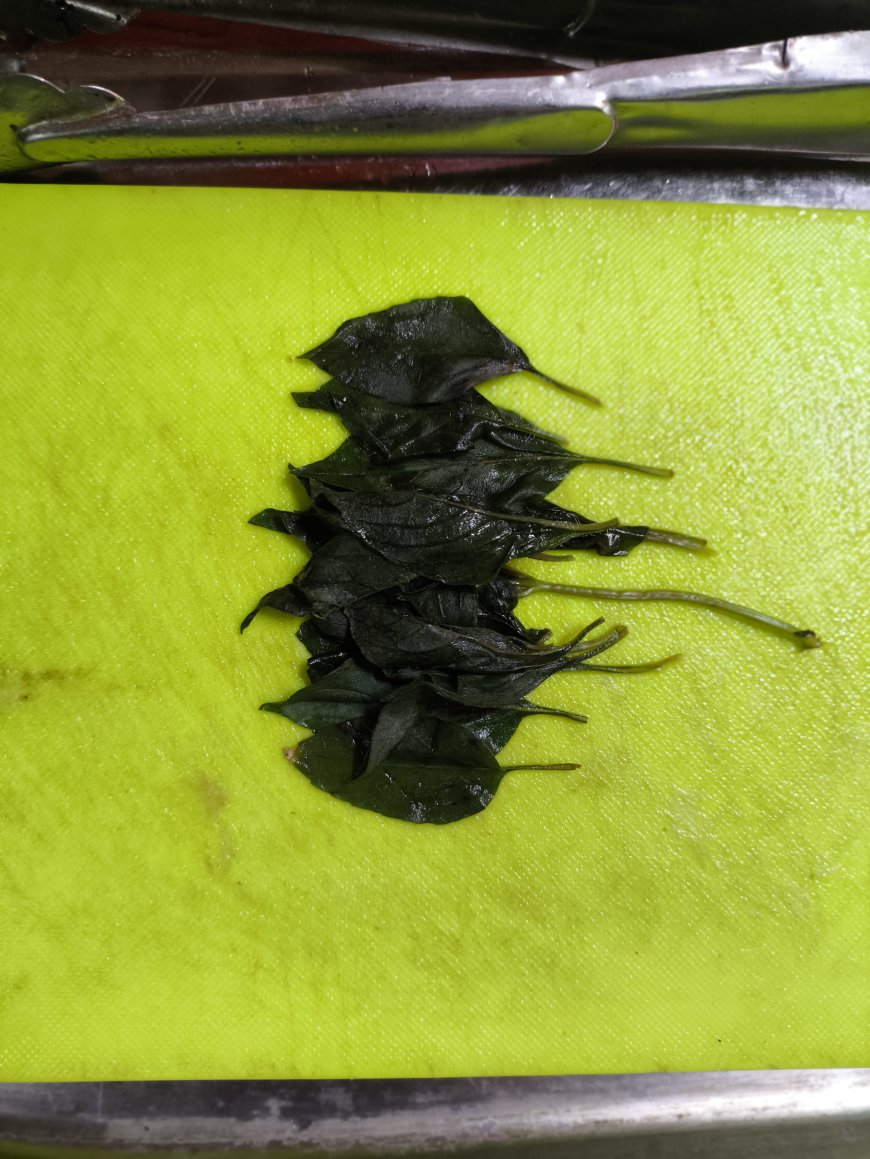
Basil Leaves After Being Thoroughly Washed (Source: Personal Collection)
1. Wash the basil leaves thoroughly.
First, wash the basil leaves under running clean water to ensure that all dirt, dust, or pesticide residues that may still be stuck to the leaves are completely removed. This washing process is crucial for maintaining the cleanliness and safety of the leaves before using them in the herbal preparation, allowing you to minimize the risk of contamination that could affect health.
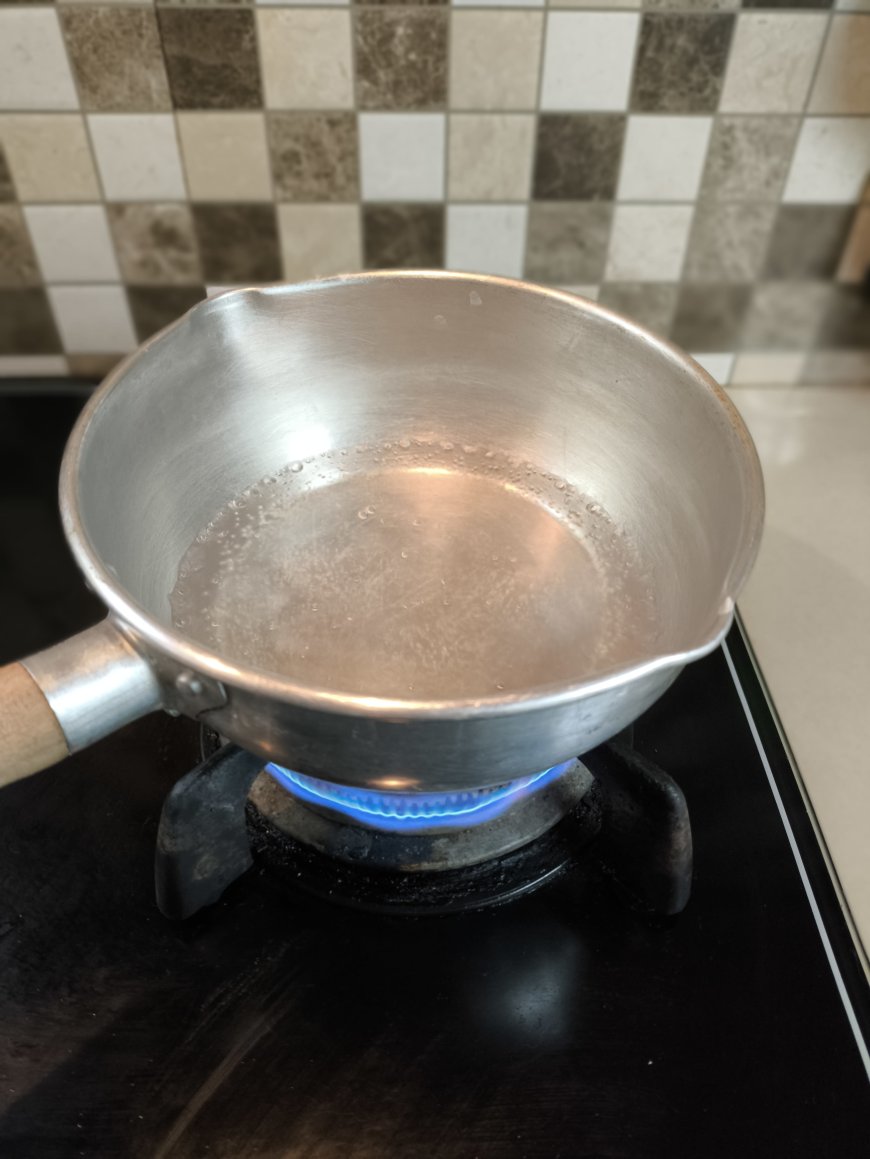
The Process of Boiling Water (Source: Personal Collection)
2. Boil water until it reaches a rolling boil.
Boil one cup of water (250 ml) until it reaches a boiling point, as this boiling process will be very effective in helping to extract the various active compounds found in basil leaves. This process will not only release the essential oils that provide a distinctive aroma but will also release antioxidant compounds that are beneficial for health.
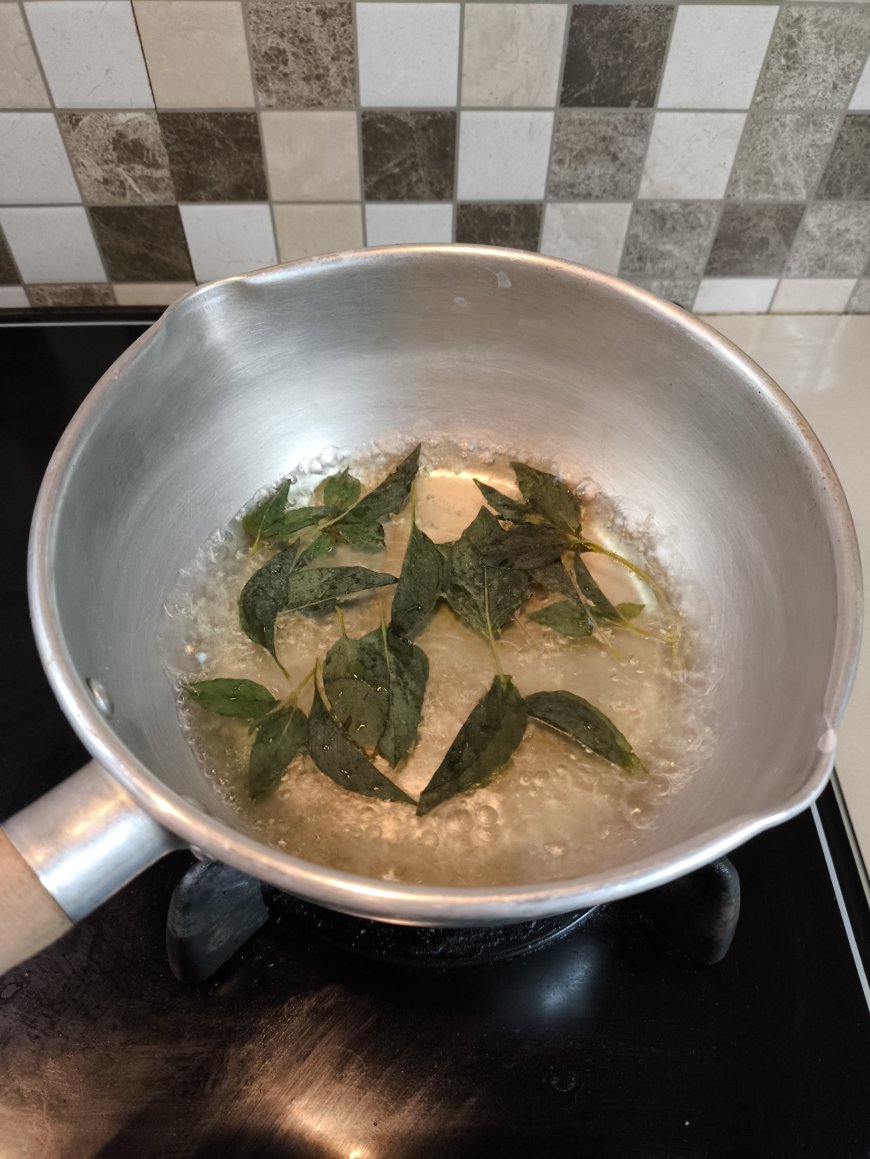
The Process of Adding Basil Leaves to Boiling Water (Source: Personal Collection)
3. Add the basil leaves to the boiling water and let steep for 5-10 minutes.
After the water has boiled, turn off the heat to stop the cooking process, then carefully add the 10 freshly washed basil leaves into the hot water. Ensure that each basil leaf is fully submerged in the water so that all parts of the leaf can absorb the heat and release the essential oils as well as other beneficial compounds. This process will enhance the quality of the extraction, allowing the water to obtain the optimal flavor, aroma, and health benefits from the basil leaves.
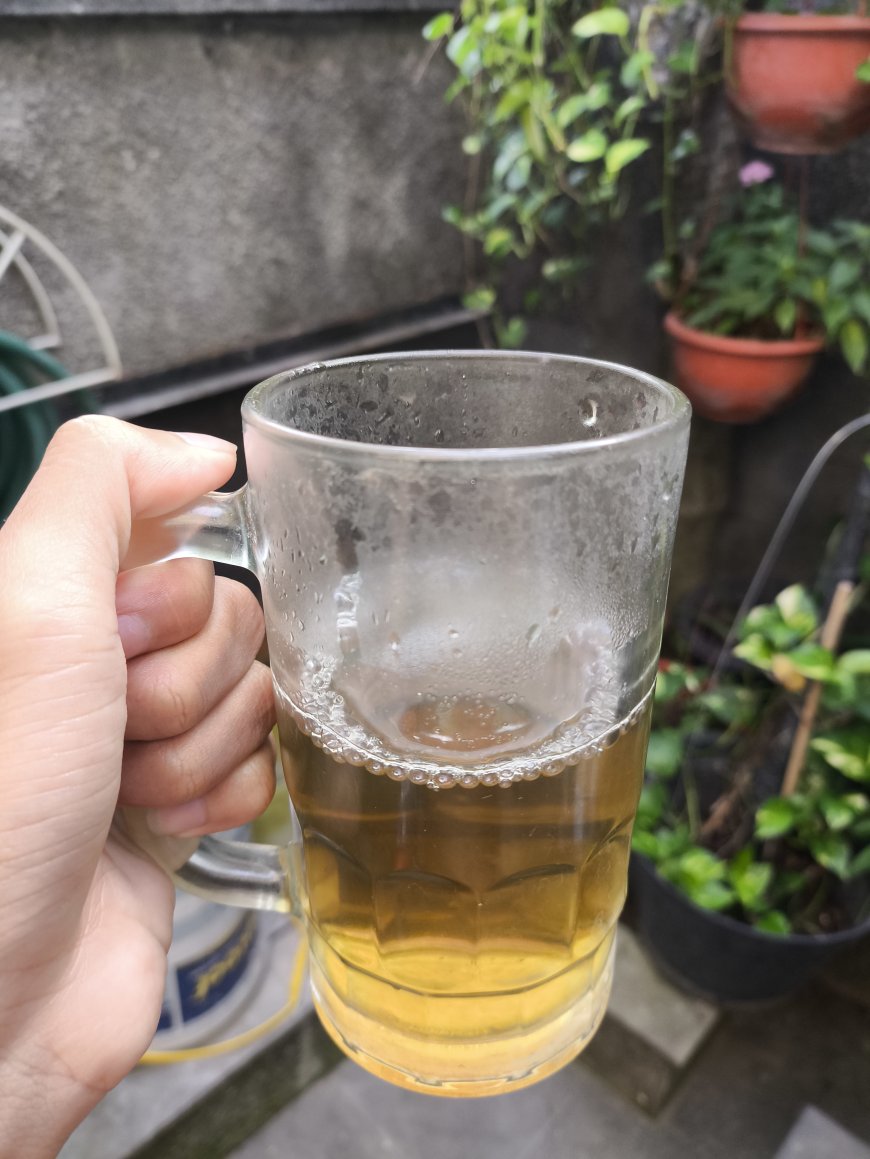
The Strained Infusion (Source: Personal Collection)
4. Strain and drink the infusion while warm, 2-3 times a day.
Let the basil leaves steep in the hot water for 5-10 minutes. This process is important to ensure that the active compounds from the basil leaves dissolve in the water, creating an effective herbal infusion. During this time, the water will change to a slight green color and release the distinctive aroma of basil.
By following these simple steps, basil leaves can be utilized as a highly beneficial herbal remedy for addressing various health conditions. The use of basil leaves is not only limited to treating specific illnesses but also contributes to overall health. The benefits contained in basil leaves, such as antioxidant properties, anti-inflammatory effects, and the ability to enhance the immune system, make them an excellent choice for supporting overall bodily health. Therefore, integrating this herbal infusion into your daily routine can provide numerous advantages for physical and mental well-being.















































